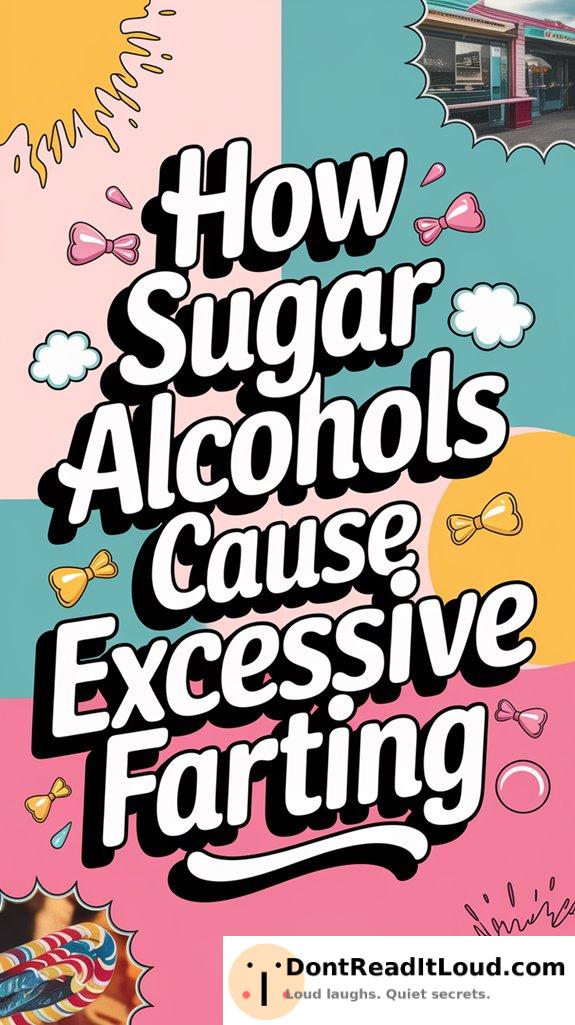
When you eat foods with sugar alcohols like sorbitol or xylitol, your body can’t completely absorb them in the small intestine. Instead, they pass into the colon, where gut bacteria break them down. This breakdown releases gases such as hydrogen and carbon dioxide, which can cause increased farting, bloating, or cramps. People respond differently to these sweeteners, so reactions vary from person to person. Stick with us to learn how to manage these effects and pick better alternatives.

Even though sugar alcohols taste sweet and are lower in calories than regular sugar, they can upset your digestive system. You might choose foods with xylitol, sorbitol, or erythritol, thinking they’re healthier. These sweeteners are found in sugar-free gum, protein bars, and many other products. However, if you’ve noticed extra gas or bloating after eating them, you’re not alone. Sugar alcohols are well known for causing uncomfortable digestive symptoms, especially if you eat more than your body can handle.
Your body doesn’t absorb sugar alcohols as effectively as regular sugar. Instead, a large portion moves through your small intestine undigested. Once these reach your colon, your gut bacteria start breaking them down. This fermentation process releases gases such as hydrogen, carbon dioxide, and methane. That’s why you may experience increased gas, bloating, and frequent farting.
Your gut bacteria are simply doing their job, breaking down undigested carbohydrates like sugar alcohols for energy. Since sugar alcohols are especially resistant to digestion, they give bacteria more material to ferment. Unfortunately, the resulting gases can build up quickly and cause noticeable discomfort.
Switching to sugar alcohols may seem like a healthier choice, but everyone’s tolerance is different. If you get gas, cramping, or diarrhea after eating these sweeteners, your body may be telling you to cut back. Lowering your intake can help reduce symptoms and limit gas buildup.
Not all sugar alcohols affect people equally. For example, erythritol is mostly absorbed before reaching the colon, so it tends to cause fewer issues. Others, like sorbitol and mannitol, often lead to more gas because they pass through your gut largely unchanged. Reading labels and noticing which types bother you most can help you make better decisions.
Paying attention to your reactions can help you avoid digestive problems. If you notice more gas than usual, try limiting foods with sugar alcohols and see if you feel better. Finding the right balance can keep your digestion comfortable and reduce unwanted side effects.
Conclusion
When you eat foods containing sugar alcohols, your gut can’t completely digest them. They reach your colon, where bacteria break them down and release gas. This extra gas can lead to increased farting, especially after consuming sugar-free snacks. To reduce bloating and gas, consider eating fewer sugar alcohols. Pay attention to how your body reacts to find what suits you best.



